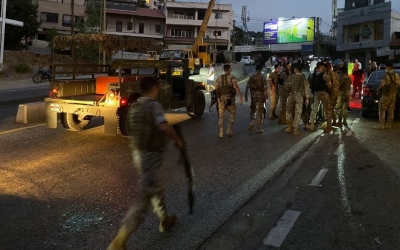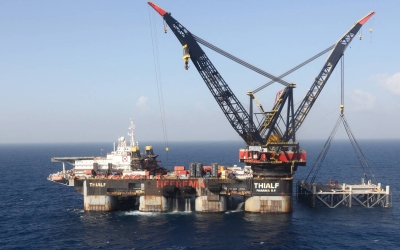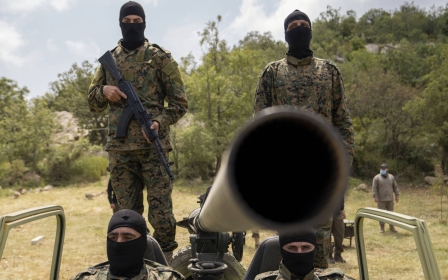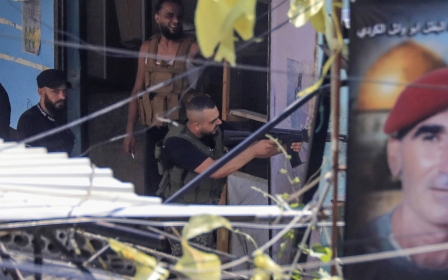UN renews Lebanon peacekeeping mission as border tensions simmer
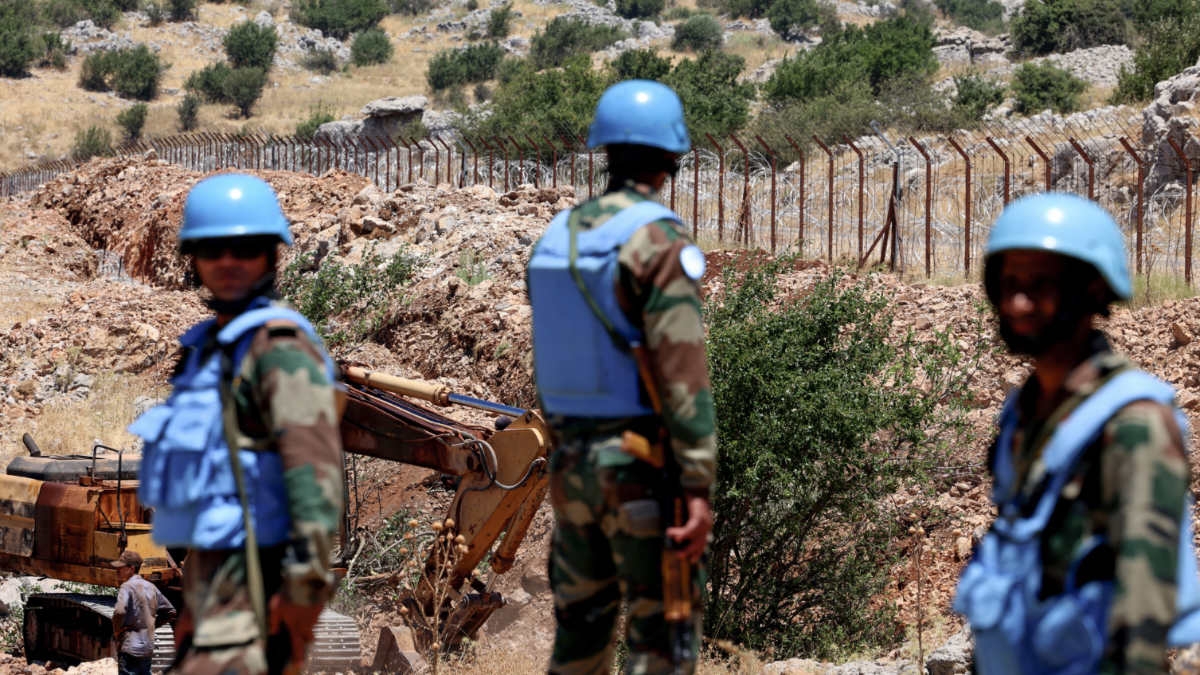
The UN Security Council on Thursday extended the mandate of its peacekeeping force in Lebanon (UNIFIL) for a year in a down-to-the-wire vote amid rising tensions along the Israeli-Lebanese border.
The vote was initially scheduled for Wednesday but was postponed as the UAE, US and France argued over a draft resolution put forward by Paris that had removed text allowing for the peacekeeping force to conduct "announced patrols" in southern Lebanon.
The resolution adopted by 13 votes in favour and two abstentions, Russia and China, extends the mandate of UNIFIL until 31 August 2024, with language that allows the approximately 10,000 peacekeepers to conduct announced patrols.
The text called on all parties to "ensure that UNIFIL's freedom of movement in all its operations and that UNIFIL's access to the Blue Line in its entirety is respected and not hindered".
"UNIFIL does not need prior authorization or permission to carry out the tasks of its mandate" and "is authorised to conduct its operations independently" continues the text, stressing the need to "coordinate with the government from Lebanon", the text added.
New MEE newsletter: Jerusalem Dispatch
Sign up to get the latest insights and analysis on Israel-Palestine, alongside Turkey Unpacked and other MEE newsletters
The Lebanese government, in a letter to the UN secretary-general, had called for the peacekeeping force's mandate to be renewed without language that granted the Blue Helmets this degree of freedom of movement.
Meanwhile, the Iran-backed armed group Hezbollah, which is also Lebanon's most powerful political party, opposed renewing the mandate if it allowed for announced patrols.
'Ink on paper'
Southern Lebanon is Hezbollah's main power base and its armed forces operate independently from the Lebanese army. In June, Middle East Eye reported from southern Lebanon on the group's growing arsenal.
Hezbollah leader Hassan Nasrallah warned earlier this week that the people of southern Lebanon would not allow UNIFIL to travel unhindered, but would not use weapons against the peacekeepers either.
"A foreign armed force that moves on Lebanese territory without the authorisation of the Lebanese government and army, without coordination with the Lebanese army - where is the sovereignty in all this?" he asked, adding that extension allowing freedom of movement would remain "ink on paper".
UNIFIL was established in 1978 to oversee the withdrawal of Israeli troops from southern Lebanon.
Its mandate was expanded in 2006 after Hezbollah fought a 34-day war with Israel to prevent the proliferation and movement of weapons and armed groups in southern Lebanon. Seventeen percent of the peacekeeping forces' activities are carried out jointly with the Lebanese military.
UNIFIL peacekeepers patrol along the Blue Line, an improvised border between Lebanon and Israel and Syria's occupied Golan Heights that is marked with minefields, imaginary lines between poles and occasional walls and fences.
US eyes new Lebanon-Israel deal
Thursday's vote comes amid a spike in tensions in southern Lebanon. In December, an Irish soldier in the peacekeeping mission was killed when his convoy came under fire in Hezbollah-affiliated territory. The group denied any involvement in the killing.
More recently, tensions have been rising between Hezbollah and Israel.
In an escalating war of words, Israel's defence minister threatened to "return Lebanon to the stone age". In July, Israel began building a wall around the northern part of Al-Ghajar village in the occupied Golan Heights that Lebanon considers its territory.
In July, the Israeli military shelled southern Lebanon after two rockets were launched from the area.
Protests by Lebanese farmers, standoffs between Israeli and Lebanese soldiers, the firing of missiles and Israeli shelling of southern Lebanon have all contributed to heightened tensions since March.
Senior White House adviser Amos Hochstein traveled to Lebanon this week in a bid to diffuse the rising tensions.
On Thursday he said the White House was looking for ways to resolve the border dispute between the neighbours, saying it was "natural" after the US successfully brokered a maritime delineation deal between them in 2022.
Lebanon and Israel lack official diplomatic relations and are technically in a state of war, but analysts previously told MEE that the potential to exploit lucrative gas deposits brought them together.
Middle East Eye delivers independent and unrivalled coverage and analysis of the Middle East, North Africa and beyond. To learn more about republishing this content and the associated fees, please fill out this form. More about MEE can be found here.


